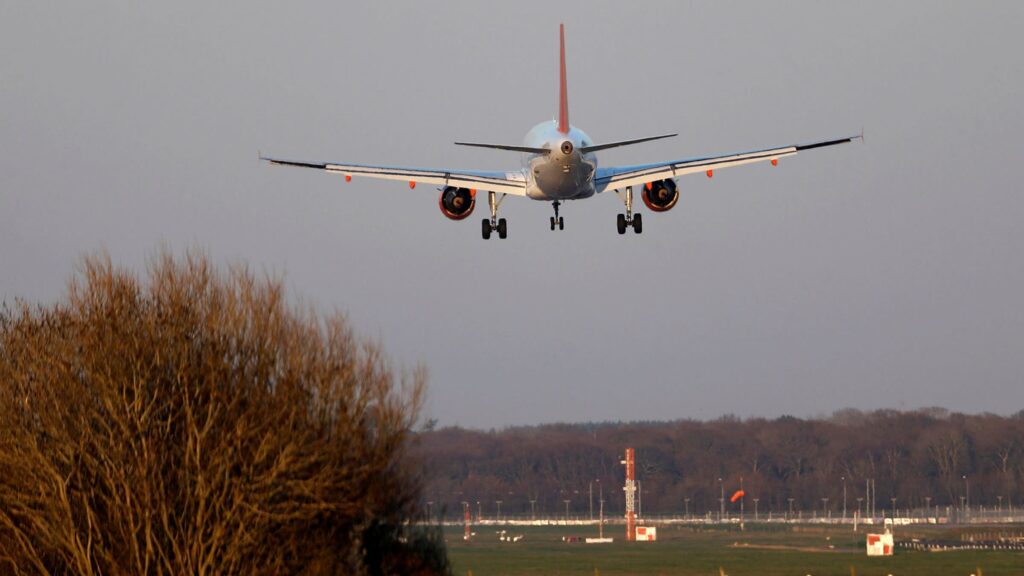Gatwick to expand despite pandemic hit and environmental concerns


Gatwick Airport Ltd updates
Sign up to myFT Daily Digest to be the first to know about Gatwick Airport Ltd news.
Gatwick airport is to push ahead with expansion despite the hit to the business from the pandemic and mounting concerns over aviation’s impact on the environment.
The UK’s second busiest airport will launch a public consultation next month to bring its standby runway into regular use at a cost of £500m, increasing annual passenger capacity by two-thirds over the next two decades to more than 70m.
The project is significantly less complex than rival Heathrow’s longstanding efforts to build a third runway as no new land is needed and is within the existing airfield.
But the plans still come at a tricky time for the industry as it faces pressure to reduce emissions and is struggling to recover from the pandemic, which has hit Gatwick particularly hard.
The airport is only using one of its two terminals, has cut staff numbers and cancelled or deferred more than £570m of capital spending that had been planned for 2020, 2021 and 2022.
Like several other airports, Gatwick has also begun talks with lenders over short-term waivers on its loans.
To add to the problems, there is fierce opposition from community and climate groups because of worries over noise, congestion and emissions.
Still, Stewart Wingate, the airport’s chief executive, is confident passenger numbers will return to pre-pandemic levels over the next four years, which means London airspace is likely to face a capacity crunch again, prompting the need to expand.
“Very quickly demand in the London system starts to outstrip supply, therefore it is imperative for us to bring forward our proposals,” he told the Financial Times.
“Heavy capital expenditure will fall in the second half of decade . . . but compared to others our proposals are actually cost effective,” he added.
Wingate said the work on the airfield has the backing of Gatwick’s owners, France’s Vinci Airports and a consortium managed by Global Infrastructure Partners.
With the government estimates suggesting demand for flying will increase by 50 per cent from 2018 levels by 2050, Gatwick is not alone among the airports in pushing for expansion.
While the pandemic has put several expansion projects on hold, none have been abandoned despite the pressures to limit or scrap them because of the sharpening focus on climate change.
However, ministers are currently taking expansion requests on a case-by-case basis, with the government’s own Climate Change Committee saying any extensions would have to be balanced by capacity cuts elsewhere.
Wingate said the proposals are “definitely in line with government policy”, and pointed to aviation’s road map to decarbonise, which is reliant on new technologies such as sustainable fuels and in the longer term electric or hydrogen aircraft.
This failed to soothe the protesters. The Gatwick Area Conservation Campaign said expansion “would mean more noise, more CO2 emissions and other climate impacts, more congestion on local infrastructure and poorer air quality”.
Communities Against Gatwick Noise and Emissions, an umbrella organisation for local and environmental groups, said the airport industry should be “constrained” to stop expansion.
Gatwick’s work would involve moving the standby runway 12 metres to the north, shifting it further from the current main runway to allow dual runway operation while complying with international safety standards.
The project would increase the number of passengers that can use the airport annually from the current 45m to 75m by 2038, once extra terminal facilities have been built.
“We know our proposals are very cost effective. This is measured in the hundreds of millions and is acceptable to our shareholders. The Heathrow plan is in the billions and is matter for them and their shareholders,” Wingate said.
After the public consultation, the airport would have to apply for a development consent order, a streamlined planning process for nationally important infrastructure projects. Wingate said permission could be granted by 2024.
Gatwick first published the plans in 2018, three years after the government’s Airport Commission recommended it should not have a full-length second runway with Heathrow building a third instead.
However, the commission also said the UK needed to “improve the use of existing capacity” at airports.